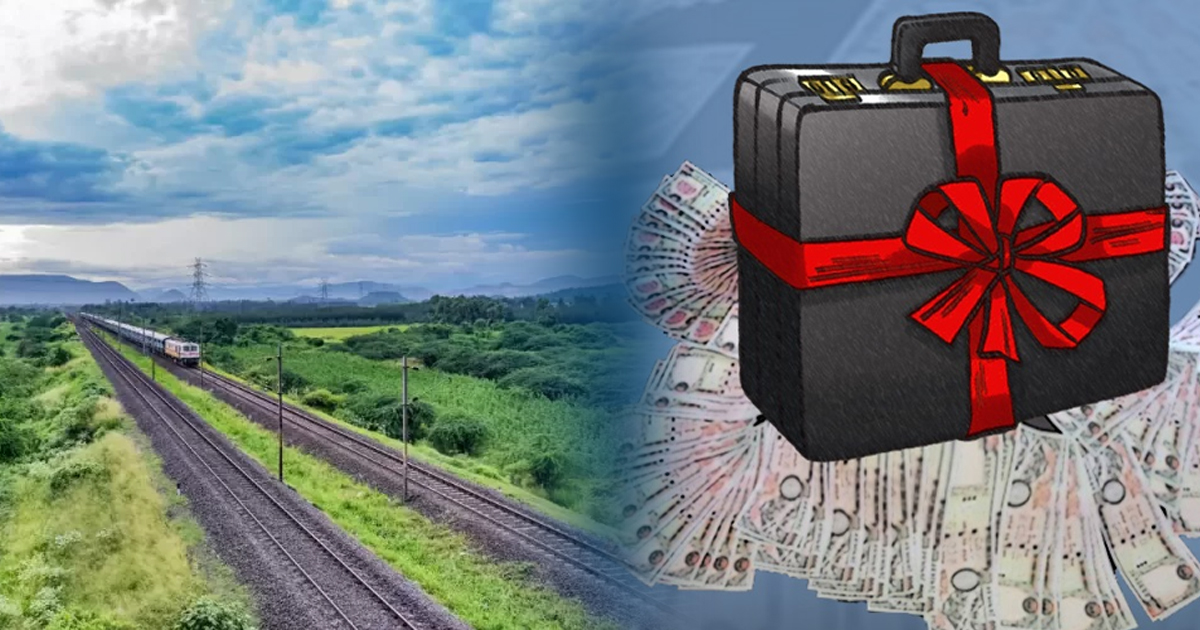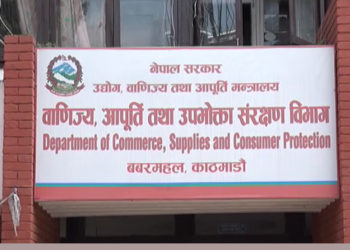KATHMANDU: The proposed 925-kilometer-long East-West Electric Railway Project is facing significant delays due to insufficient budget allocations.
After more than a decade and a half since construction began, the overall physical progress of the project stands at only around four percent.
Despite years of budget expenditure on the project, the government has failed to construct even the track bed for the railway running from east to west.
This situation exemplifies the state’s failure to achieve anticipated advancements in infrastructure development.
Construction has progressed in various sections from Kakadbhitta in the east to Gaddachauki in the west.
However, most sections, aside from a few, have nearly stalled. The government initiated this national pride project in the fiscal year 2067/068 BS, yet its progress remains unsatisfactory.
So far, 65 kilometers of track bed have been completed under the 925-kilometer electric railway project.
Apart from the Bardibas-Nijgadh section, most railway segments have not seen significant advancements in construction.
Government officials cite multiple reasons for the lack of expected progress. A primary factor is the government’s low annual budget allocation for the project.
The construction of railways is inherently expensive, with billions of rupees spent on land compensation alone.
However, the government has allocated only one and a half to two billion rupees annually for the project.
In the last fiscal year (2080/081), just one billion rupees were designated for compensation.
A Detailed Project Report (DPR) for the entire project has been completed, but construction has not progressed as anticipated.
In certain areas where the DPR has been finalized, construction of the railway track bed is ongoing.
Though land acquisition has occurred, compensation remains unpaid. If the government maintains the same budget allocation as the previous year for this section, project employees estimate it could take another five to six years to resolve the compensation distribution.
However, in other locations, work has stalled for years due to unresolved land compensation issues.
Although DPRs exist for some sections, approvals for Environmental Impact Assessments (EIA) are still pending.
Compensation Challenges in the Eastern Section
In the eastern section of the railway, specifically the Kakadbhitta-Inaruwa segment, the DPR has been prepared, but construction has been halted for five years due to disputes over land compensation, inadequate preparation, and local obstacles.
Progress on this railway section has stalled because the government has not allocated sufficient budget for compensation distribution.
The previous government attempted to advance the construction contract despite withholding local land in the project area, but the project work has ceased due to difficulties in land acquisition and preparation.
Strong opposition arose against advancing the contract without adequate compensation distribution, leading the government to cancel it.
According to the Railway Department, more than 20 billion rupees are needed to compensate for this section alone.
However, the government has consistently allocated only one to one and a half billion rupees annually.
As a result, the expected progress on railway construction has not materialized, according to Kamal Kumar Shah, spokesperson for the Railway Department.
Initially, the project’s cost was estimated at 12 trillion rupees. However, due to ongoing delays, the current estimate has risen to approximately 15 trillion rupees.
Shah noted that while DPRs for all sections, barring one, have been prepared and construction appears satisfactory in some areas, work has yet to commence due to a lack of assured resources for compensation distribution.
Though land acquisition has occurred, compensation remains unpaid. If the government maintains the same budget allocation as the previous year for this section, project employees estimate it could take another five to six years to resolve the compensation distribution.
Promising Progress in Bardibas-Chothakhanda
Construction in the Bardibas-Nijgadh Chothakhanda section of the East-West Electric Railway is progressing satisfactorily compared to other sections.
According to the department’s spokesperson, Shah, 65 kilometers of the 69-kilometer railway track bed have been completed, along with the construction of 16 bridges.
“The construction of 65 kilometers of track bed and 16 bridges in the Bardibas-Chothakhand section has been completed,” Shah told Khabarhub.
“The overall progress in that section stands at 45 percent. Work on the remaining segments is also moving forward.”
The Detailed Project Report (DPR) for all sections of the railway has been prepared, except for the Nijgadh-Butwal section.
The Railway Department indicated that delays in this DPR are due to the need for a new alignment, as this section passes through Chitwan National Park.
Shah explained that while the previous alignment was designed to connect Butwal via Nijgadh-Thori-Madi, it could negatively impact wildlife and vegetation in the national park.
Therefore, a new study is underway for a revised alignment from Nijgadh to Hetauda and Tamsariya in Bharatpur.
The DPR reports for the other sections, including Inaruwa-Kankadbhitta, Inaruwa-Bardibas, Bardibas-Nijgadh, Butwal-Lamah, Lamamah-Kohalpur, Kohalpur-Sukkhad, and Sukkhad-Gaddachauki, have already been completed.
However, the Environmental Impact Assessment (EIA) report for the Nijgadh-Butwal section is still pending.
Budget in Billions for a Trillion-Rupee Project!
According to Shah, the spokesperson for the Railway Department, delays in the project are contributing to rising costs.
The East-West Electric Railway Project, which began construction 15 years ago, has seen its estimated cost escalate significantly.
“The government is currently building a railway from Bardibas to Nijgadh, with a budget allocation of 2 to 3 billion rupees. However, there is no need for this railway; it simply will not work,” he told Khabarhub.
Initially, the project’s cost was estimated at 12 trillion rupees. However, due to ongoing delays, the current estimate has risen to approximately 15 trillion rupees.
“The cost of the East-West Electric Railway has increased. Initially estimated at 12 trillion rupees, it is now projected to reach 15 trillion rupees,” Shah stated.
Infrastructure expert Dr. Suryaraj Acharya argues that the state should not invest billions in railway construction when Nepal’s road transport infrastructure remains unreliable. He believes there is no necessity for a railway in the country.
“The government is currently building a railway from Bardibas to Nijgadh, with a budget allocation of 2 to 3 billion rupees. However, there is no need for this railway; it simply will not work,” he told Khabarhub.
“This may benefit the contractors, but based on the DPR, even if the track is laid, the railway cannot operate. Given the high costs associated with railway infrastructure, state funding alone will not suffice.”









Comment